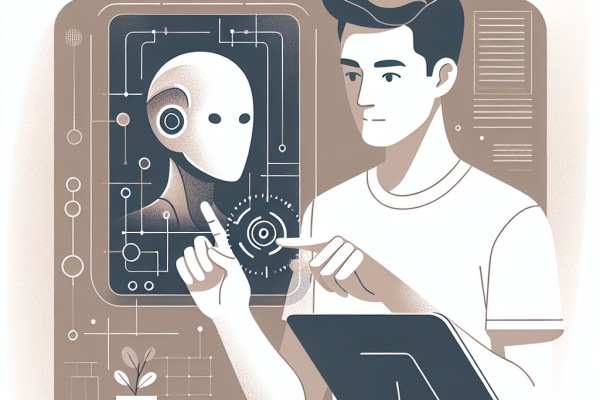Millions of WhatsApp users woke up this week to a digital silence—the friendly, all-knowing AI assistants powering countless chats were suddenly gagged. Gone are ChatGPT, Microsoft Copilot, and a host of other AI-driven bots. For many, this was the first sign that Meta, Whatsapp’s parent company, is drawing a sharp line on the future of human–AI conversations. Is this a bold move to protect privacy and safety, or a seismic shift in Big Tech’s grip over how we communicate, work, and do business?
With AI chatbots rapidly integrating into our digital day-to-day—automating tasks, providing instant insights, and even offering emotional support—the abrupt AI chatbots ban on WhatsApp isn’t just a tech footnote. It signals explosive questions around privacy, corporate control, and the uncertain road ahead for messaging and digital AI companions. As businesses, consumers, and the entire tech landscape scramble to understand what’s next, let’s break down the facts, fears, and forecasts shaping this landmark moment.
The Problem: Why Are AI Chatbots Being Restricted on WhatsApp?
In a move that stunned both users and developers, Meta, the parent company of WhatsApp, swept through and banned third-party AI chatbots, including heavyweights like ChatGPT and Microsoft Copilot, from its messaging service (TechCrunch, June 12, 2024). Overnight, seamless AI-driven integrations built on OpenAI’s technology—and even fledgling startups—were forcibly disconnected.
The reasons behind this clampdown are rooted in security, privacy, and a tightening of Meta’s platform rules. According to a Reuters report, WhatsApp cited “growing concerns for user safety and data privacy” as the driving forces. The company claims third-party chatbot integrations often violate policies related to how conversations are captured, stored, and potentially shared.
- Meta’s new enforcement has seen chatbots’ API access revoked—cutting off key services businesses and consumers rely on daily.
- WhatsApp removes ChatGPT integration and issued warnings to developers, stating, “Automation or bulk messaging by unauthorized AI bots puts user privacy at risk” (Reuters).
So, What are the risks of AI chatbots on messaging apps? According to The Verge, the biggest issues include:
- Potential exposure of sensitive chat data to third-party AI models.
- Automated bots misusing WhatsApp’s infrastructure for spam, fraud, or spread of misinformation.
- Lack of user transparency—most consumers may not realize their conversations are processed by external AI not governed by WhatsApp’s own privacy standards.
Microsoft Copilot WhatsApp Removal—The Real Shockwave
Perhaps most telling was Meta’s direct removal and block of Microsoft Copilot from WhatsApp channels—previously hailed as a productivity game-changer for businesses and individuals (TechCrunch). This signals a much broader policy reset, as even trusted Big Tech partners aren’t spared when user safety or data sovereignty are questioned.
Why It Matters: The Human, Social, and Business Impact
The implications ripple far beyond tech circles. For millions using WhatsApp across 180+ countries, the loss of popular AI bots isn’t an inconvenience—it’s a potential productivity crisis and a shake-up to digital trust. Businesses, especially SMBs, relied on automated chatbots for customer support, scheduling, and even sales; that digital workforce vanished overnight. The impact of the AI chatbot ban on businesses is immediate and expensive, with companies reporting a scramble to find or retrofit less-sophisticated solutions.
On a personal level, many users sought the comfort and speed of AI-generated responses for daily questions, homework help, or even emotional health check-ins. With these tools gone, those with language, accessibility, or social barriers may find digital communications harder, not easier.
- Economic Disruption: According to industry analysts, small e-commerce brands could see average customer response times increase by over 40% due to manual handling (TechCrunch).
- Digital Inclusion Hurdle: AI bots often bridge language and technical literacy divides—limitations could marginalize disadvantaged groups.
- Workforce Uncertainty: As digital assistants become essential, their sudden loss revives fears about business agility and competitive parity.
Expert Insights & Data: What Authorities Are Saying
Meta has publicly stated, “User trust is paramount… any third-party solution must fully comply with WhatsApp’s privacy and security expectations” (Reuters). Industry experts offered the following perspectives:
- TechCrunch: “WhatsApp’s ban isn’t about halting AI progress, but about asserting control over where data goes and how it’s used” (TechCrunch).
- The Verge: “Blocking bots like ChatGPT is a strong statement: No AI is above user safety, even if it’s valued by millions.” (The Verge).
- Reuters: The ban “reflects a global wave of caution across platforms as AI’s rapid evolution outpaces regulations.”
One reported stat from internal Meta documents: up to 7 million WhatsApp users interacted with AI-enabled chatbots in the last quarter alone—highlighting the scale of change (TechCrunch).
WhatsApp Policy on Third-Party AI: A New Standard?
Meta’s updated guidance states: “WhatsApp does not permit automated or bulk messaging by third-party AI bots” and any system integrating external AI must undergo a full review process (The Verge).
- Bots must NOT store or process user messages without explicit transparency and compliance measures.
- Developers face immediate bans for unapproved automations, and repeated violations could see their entire business access revoked.
This sets a precedent across the broader messaging landscape, as Telegram, Signal, and Slack face rising calls to clarify their own AI guidelines.
Future Outlook: Long-Term Effects of Restricting AI Assistants
What does Meta’s bold action mean for the entire industry?
- Short-term pain, long-term clarity? Regulatory frameworks for AI in messaging could emerge faster, finally putting guardrails around data sovereignty and consent.
- Innovation Handcuff? Some experts warn tighter controls could stifle start-up innovation, slowing down life-changing AI use cases that responsibly enhance messaging.
- User Trust as Currency: As scandals and breaches mount, platforms that put privacy first may reap long-term loyalty (and regulatory goodwill).
- The race for in-house AI: Expect Meta to invest heavily in its own sanctioned AI assistant for WhatsApp—removing reliance on external players like OpenAI or Microsoft.
Chart Suggestion: “Messaging App AI Policy Comparison (2024)”
| Platform | AI Integration Policy (as of June 2024) | 3rd-Party AI Allowed? | Main Risk Cited |
|---|---|---|---|
| Strict ban on unapproved 3rd-party AI bots | No | Data privacy | |
| Telegram | Open, but tightening review process | Yes (for now) | Security, spam |
| Slack | Integration with review, but stricter for external bots | Conditional | Enterprise compliance |
| Signal | No public AI integration yet | N/A | User anonymity |
Case Study: How the AI Ban Has Transformed a Small Business
Take the example of “FastMove Logistics,” a startup relying on ChatGPT bots to handle booking queries on WhatsApp. Post-ban, booking automation failed. CEO Jane Park says:
“Our response time is up 50%, and we’ve needed to double human staff overnight. Unless Meta offers an alternative, we’ll consider shifting our customer service to rival platforms with more flexible AI policies.”
Related Links
- [External: MIT Technology Review: Meta’s AI vision for messaging]
- [External: WSJ: How privacy debates shape tech platforms]
- [External: NASA: Responsible AI usage policies]
FAQ: AI Chatbots Banned from WhatsApp — Key Questions Answered
Why did WhatsApp ban AI chatbots like ChatGPT and Copilot?
Meta cited privacy and user safety concerns, stating that third-party AI bots often violate WhatsApp’s data-use policies by storing or processing conversations externally (Reuters).
What are the risks of AI chatbots on messaging apps?
Main risks include data leaks, misuse for spam or fraud, lack of transparency for users, and the spread of misinformation, according to The Verge.
How does this impact businesses relying on AI assistants?
Businesses face immediate disruption to customer service bots, increased manual workload, and rising costs for replacing lost automations. Some may move to rival platforms.
Will WhatsApp ever allow AI chatbots again?
Meta says it is re-evaluating policies and may approve trusted, fully compliant AI integrations in the future. For now, strict bans are in place (TechCrunch).
What does this mean for the future of messaging apps and AI?
Experts predict more rigorous regulations, greater emphasis on privacy, and a shift toward in-house AI assistants tightly controlled by messaging platforms.
Conclusion: Lines Drawn, Futures Unwritten
Meta’s decision to ban AI chatbots from WhatsApp has redrawn the map for digital AI assistants, privacy, and the balance of power between platforms, users, and outside innovators. The immediate fallout is real, with businesses scrambling and everyday users losing a valuable digital ally. Yet, as privacy anxieties and regulatory scrutiny climb, this bold move may ultimately prod the industry toward more responsible AI—and more transparent digital experiences for all.
In the world of messaging, who gets to speak for us—human, machine, or Big Tech? The answer may redefine connection in the age of AI.

